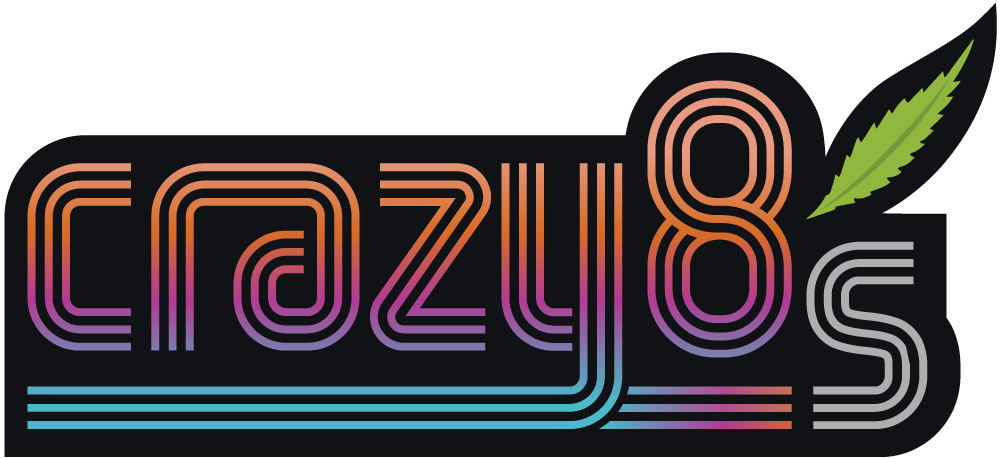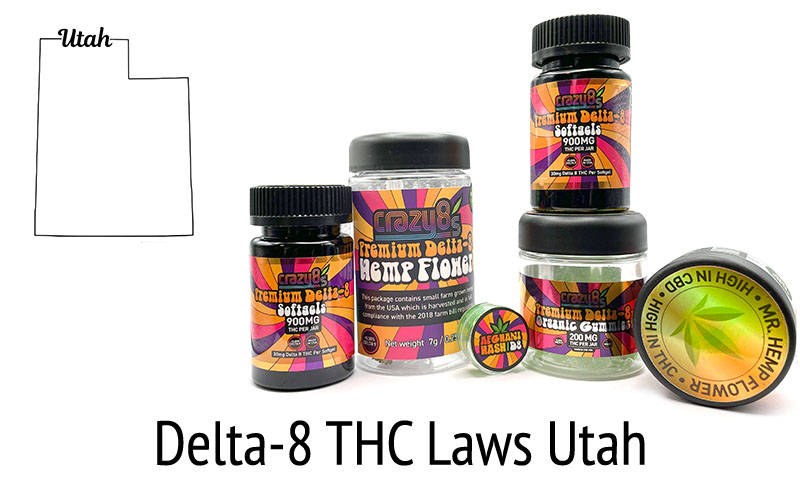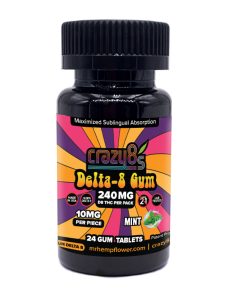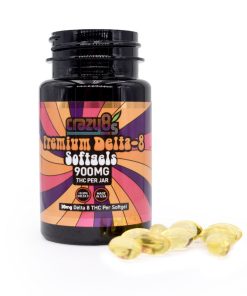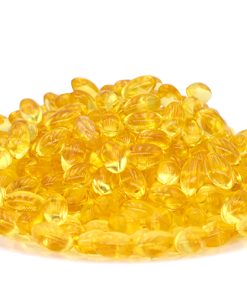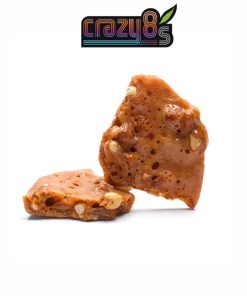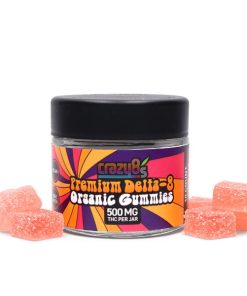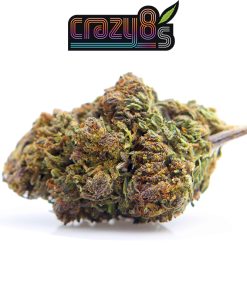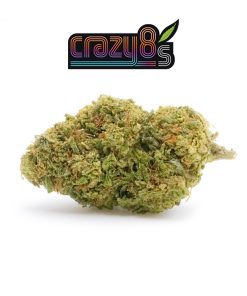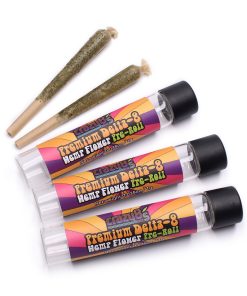Delta 8
Is Delta 8 THC Legal in Utah, If So, Where to Order
Is delta 8 legal in Utah? For now, the only THC products you can buy in the Beehive State must be sold by licensed dispensaries as medical marijuana. Hemp-derived CBD products with less than 0.3% delta 9 are legal but with some restrictions. What does the future hold for Δ8-THC in Utah? Let’s take a closer look.
Is Delta 8 THC Legal in Utah?
Delta 8 THC is illegal in Utah. The state considers this cannabinoid a controlled substance under its Controlled Substances Act.
What is Delta 8 THC?
Delta 8 THC is a rare hemp cannabinoid, a sister molecule of delta 9 THC — the primary intoxicating compound of cannabis. Unlike delta 9 that’s present in the plant in high concentrations, Δ8-THC is found in trace amounts. To create it in large quantities, manufacturers convert CBD into delta 8 using solvents.
Delta 8 is known as “weed lite” because it provides a pleasant and uplighting experience that brings a feeling of relief and peacefulness. Users gravitate towards this THC isomer because of its mild effects and lower psychotropic potency. Research shows that this cannabinoid can potentially help with pain, sleep, anxiety, and nausea.
Buying Delta 8 THC in Utah
Unfortunately, you can’t purchase Δ8-THC in Utah legally because the state considers it a controlled substance. If the law changes, we’ll happily serve your needs. But, for the time being, stick to medical marijuana or hemp-derived CBD products with no more than 0.3% THC.
At Crazy8s, we are dedicated to offering pure and potent Δ8-THC extracts that work. From the first day, we’ve looked at this endeavor through the human lens. We only make products that will deliver a real benefit and are safe to consume. Most importantly, we specialize in Δ8-THC extracts that are tested by a third-party, certified lab.
Crazy8s offers the best-tasting, vegan-friendly gummies on the market. Our classic, organic gummies are infused with an evenly-distributed Δ8-THC distillate and are available in two unique flavors, Passion Fruit and Black Cherry Vanilla. This natural formula is made with carefully selected ingredients that create a powerful medicine.
Our team uses USA-grown, organic hemp from local farmers and each product comes with a detailed Certificate of Analysis. Before extraction, we test every hemp flower batch for quality, purity, and potency.
Is D8 THC Legal in Utah?
Delta 8 THC is illegal in Utah. This cannabinoid is currently banned under the state’s Controlled Substances Act.
Utah doesn’t exempt hemp-derived tetrahydrocannabinols from its Controlled Substances Act. Unlike federal law — which legalized all hemp cannabinoids and removed ‘THC in hemp’ from the list of controlled substances — the state lists all THCs and their optical isomers as illegal.
Thankfully, medical marijuana is legal in Utah under House Bill 3001 or the Utah Medical Cannabis Act, so patients can obtain legal THC products for medical needs. Hemp-derived products with less than 0.3% THC are also legal in the Beehive State.
Under state law and federal law, Utah residents can freely purchase CBD products with no more than 0.3% THC. The accepted forms are oils, capsules, topicals, gels, pills, tablets, and rectangular and cubed gummies. Utah law doesn’t allow adding CBD into food and beverages, as per federal requirements.
What Does the Future Hold?
Considering the fact that Utah is not the most hemp-friendly state, it’s unlikely it’ll legalize this cannabinoid. Because Utah has a working medical marijuana program, it may decide to follow states that regulated Δ8-THC as part of their legal cannabis system.
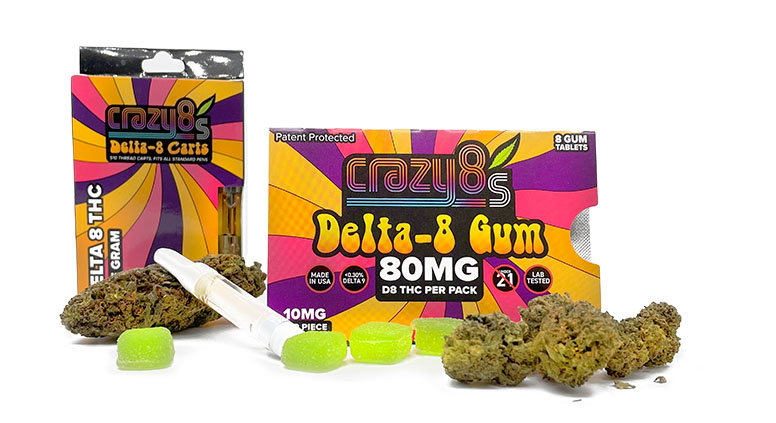
Is Delta 8 THC Legal Federally?
The law around delta 8 THC is not settled. This cannabinoid occurs naturally in the hemp plant in very small amounts, making it not financially or commercially feasible to extract it from the plant itself. Instead, most makers formulate products with Δ8-THC converted from CBD using chemicals in a lab setting. This process is the reason for the debate and unanswered questions about this cannabinoid.
The most recent response on the legality of Δ8-THC on a federal level was in a letter sent by the DEA to the Alabama Board of Pharmacy. The letter, received September 15, 2021, stated that “cannabinoids extracted from the cannabis plant that have a Δ9-THC concentration of not more than 0.3 percent on a dry weight basis meet the definition of ‘hemp’ and thus are not controlled under the CSA.”
Federal law doesn’t explicitly ban or prohibit hemp-derived Δ8-THC, but it also doesn’t define it. The letter points out that Δ8-THC that naturally occurs in hemp is legal on a federal level. But, it doesn’t clarify the legal status of Δ8-THC made through isomerization.
The letter also states that delta 8 “synthetically produced from non-cannabis material” is considered an illegal substance under the Controlled Substances Act. However, the issue with delta 8 is that it’s not entirely “synthetic” or made from non-cannabis material. This cannabinoid is made from hemp-derived CBD but with chemical solvents.
For these reasons, there’s a possibility that the DEA might label delta 8 as a “synthetic” compound. That hasn’t happened yet, so manufacturers are working in a gray legal area with this compound. Over a dozen states have already adopted laws and regulations that prohibit or restrict the sale of delta 8 products. More states are considering similar proposals.
In addition, the FDA published a warning letter to users on the dangers of consuming delta 8 THC products. They warn about its unregulated status and the spread of untested products, which has contributed to more than a few hospitalizations. Both federal agencies and states agree that regulating this cannabinoid is necessary to protect customer safety.
Unfortunately, no. Delta 8 THC is not legal to buy in Utah. The state bans all THCs and their isomers under its Controlled Substances Act.
No, it’s not. The manufacture, sale, and distribution of delta 8 is illegal in Utah.
If you live in Utah, it’s best to stick to medical marijuana dispensaries for any type of THC.
No, it’s not. As of this writing, 18 states have banned or restricted this cannabinoid, including Utah.
Read our legal disclaimer HERE. While we try to stay as up to date as possible on all state laws, you should do your own due diligence and work with a legal professional to ensure you are operating legally in your state or territory at all times.
